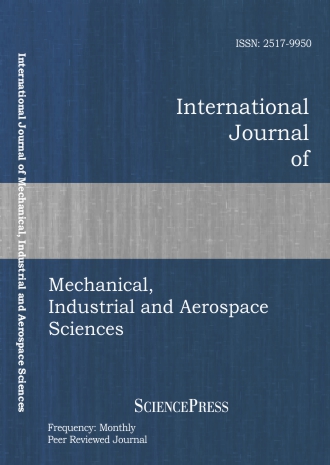
Scholarly
Volume:5, Issue: 1, 2011 Page No: 17 - 21
International Journal of Mechanical, Industrial and Aerospace Sciences
ISSN: 2517-9950
A Hybrid Neural Network and Gravitational Search Algorithm (HNNGSA) Method to Solve well known Wessinger's Equation
This study presents a hybrid neural network and Gravitational Search Algorithm (HNGSA) method to solve well known Wessinger's equation. To aim this purpose, gravitational search algorithm (GSA) technique is applied to train a multi-layer perceptron neural network, which is used as approximation solution of the Wessinger's equation. A trial solution of the differential equation is written as sum of two parts. The first part satisfies the initial/ boundary conditions and does not contain any adjustable parameters and the second part which is constructed so as not to affect the initial/boundary conditions. The second part involves adjustable parameters (the weights and biases) for a multi-layer perceptron neural network. In order to demonstrate the presented method, the obtained results of the proposed method are compared with some known numerical methods. The given results show that presented method can introduce a closer form to the analytic solution than other numerical methods. Present method can be easily extended to solve a wide range of problems.